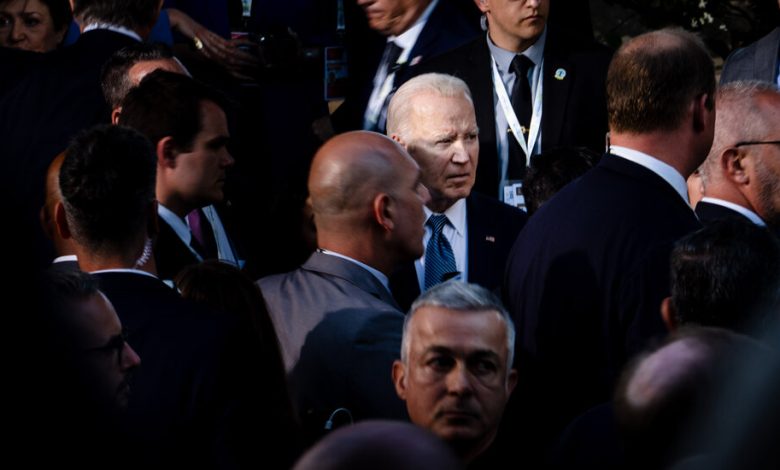Western Anxiety Makes for an Unexpectedly Smooth G7 Summit

The Group of 7 summit that ended on Saturday went extraordinarily smoothly by the standards of a gathering where the leaders of major powers come together. That was a measure of the anxiety the leaders feel about deteriorating trends in Ukraine, in the Middle East, in China and in their own political futures.
There was a dispute over the use of the word “abortion” in the communiqué, prompted by the host, Prime Minister Giorgia Meloni of Italy, but that was seen as a gesture to her domestic constituency. On important issues of geopolitics, there was little that divided the group.
President Biden may appear politically vulnerable and uncertain of re-election, but this summit meeting was another example of unchallenged American leadership of the West, especially on contentious issues of war and peace.
With the main headlines about new support for Ukraine — a $50 billion injection built on the money earned from frozen Russian assets, and long-term security pacts with Ukraine signed by the United States and Japan — this gathering was just the first in a series intended to bolster President Volodymyr Zelensky in the war against Russia.
It is followed this weekend by a so-called peace summit in Switzerland that aims to show that Ukraine has global support and is willing to negotiate on fair terms with Russia, even though Moscow has not been invited. Then, NATO holds its 75th anniversary summit meeting in Washington in mid-July.
While Ukraine will not receive an invitation to begin membership talks with NATO, the alliance, led by the United States, is preparing what Secretary of State Antony J. Blinken has called “a bridge to membership” — a coordinated package of long-term military and financial support for Kyiv that some have likened to a diplomatic and military “mission.”
